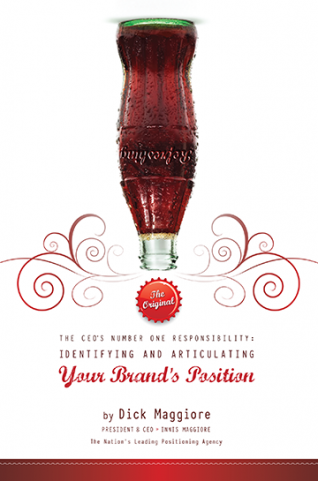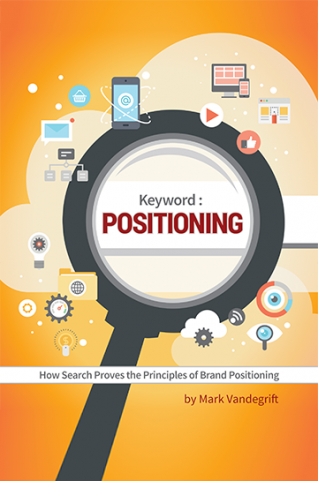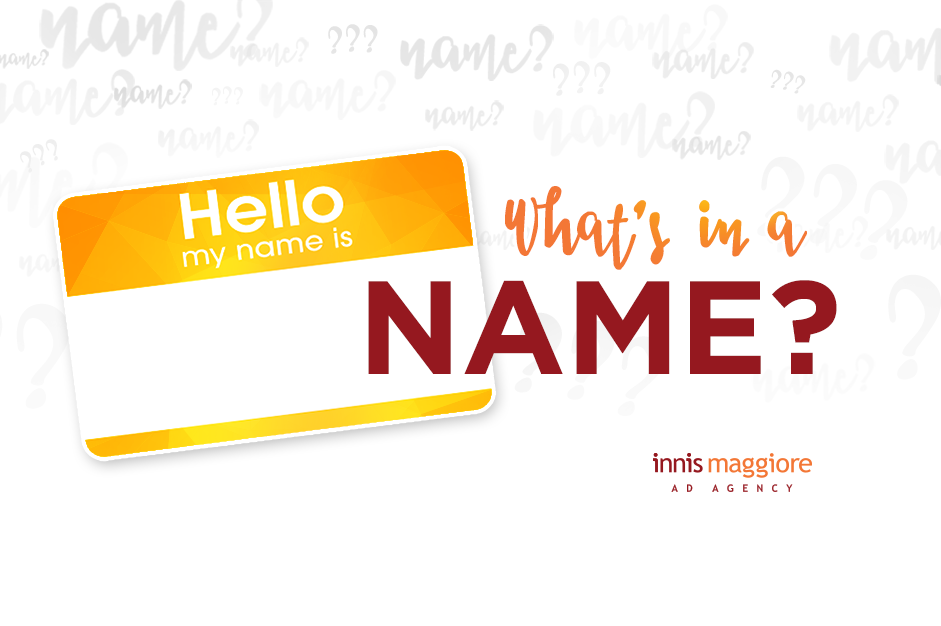From a marketing standpoint, the most important decision you can make is what to name your product or service. The right choice brings significant brand name value.
A business’ or product’s name is one of its most important assets. From a marketing standpoint, the most important decision you can make is what to name your product or service.
The name is the first point of contact between your brand’s message and the minds of your prospects and customers. The name you choose for your brand might help it to become the most valuable asset of your company —more valuable than all of the tangible assets combined.
Apple’s brand value is $154 billion. It’s the world’s largest brand. Next is Google at $82.5 billion, then Microsoft at $75 billion, Coca-Cola comes in at $58.5 billion and in fifth place is Facebook at $53 billion. Their brands are worth billions more than their buildings, manufacturing equipment and office furniture.
Great names work in concert with your product or service positioning idea. Therefore, before naming your product or service, you must find your differentiating idea, your brand’s position.
There are three considerations to finding your brand’s differentiating idea. The first is the idea must be meaningful to your prospects and customers — the more relevant the idea, the better. Second, the idea must be available. That means that your competitor cannot already own the idea in the minds of your prospects and customers. Finally, it must be an idea that your company or organization is passionate about. Your product or service must come through with the idea. You must deliver on that idea.
OK, so let’s assume you found your differentiating idea. Now, you must find a name that starts the positioning process. Your name should work overtime. Then, every time your brand’s name is read or heard, you’re growing brand equity.
Today, there are more than 2 million trademarks. These are names that have been filed with the U.S. Patent and Trademark Office so that no one else can use their name in their category. Interestingly, there are only about 500,000 words in the dictionary. So, it’s getting tougher and tougher to find a name.
Be sure to have your name checked for availability with the patent office. It is advisable to work with an attorney who specializes in intellectual property. And don’t forget to check the availability of your domain name on the web.
Names that are just a collection of letters —HSBC, TCBY, DHL, JBL, BVD, YKK, HP, MSCI, KPMG — are generally not a good way to position a brand. They are a one-way ticket to oblivion. Not much brand name value here.
There are five types of brand names:
• Functional names are used when the parent brand wants to build on its brand equity. Examples include iPod, iPhone, iMac, iCloud or BMW 325, BMW 535, BMW 750.
• Descriptive names are the most obvious because they describe what the product does but are less memorable. Examples include Martha Stewart, Two Men and a Truck, Spray ’n Wash and American Airlines.
• Invented or coined names are made-up. They are distinctive and more easily trademarked. For example, Starbucks, Google, Oreo, Kleenex, Xerox and Aleve.
• Experiential or metaphoric names try to capture the experience of using the product or service and are more memorable. Examples are Amazon, Safari, JetBlue and Explorer.
• Evocative names are more about what the product evokes. Good examples include Apple, Virgin, Yahoo and Caterpillar.
When naming, consider using real words or composite words. How about onomatopoeia? Those are words that suggest an idea (Examples: Sizzler Steak House and Snapple). Poetic names might imply other words, such as Oreo, Google and Kleenex. Words with Roman/Greek roots (examples: Agilent, Aquent) can evoke the idea you want to own. Words with personality, an emotional connection, alliteration, memorability, aspirational yet simple and short should be considered.
Examples of excellent brand names that align with the companies positioning:
• Camay or Caress (gentle soap for women).
• Purell (kills germs yet safe on skin).
• Dove (moisturizing bar for women).
• Lean Cuisine (delicious food with low calories).
• Duracell (long-lasting battery).
• DieHard (long-lasting car battery).
• Windex (for window cleaning).
• Intensive Care (for really dry, itchy skin).
• Humana (insurance for people).
• Acura (highly engineered car).
Finally, understand that even if your brand is not online, it will be searched online. Consideration must be given to search engine optimization (SEO) when naming a product or service.
There’s no silver bullet when it comes to naming. Expecting your name to do all the heavy lifting is unrealistic. You might consider a descriptor under your name. A descriptor says what category you’re in.
You might also consider a tagline. FedEx’s position is “overnight delivery.” Its descriptor is “air courier services company.” Its tagline is, “When it absolutely, positively has to be there overnight.” Well done, FedEx.



